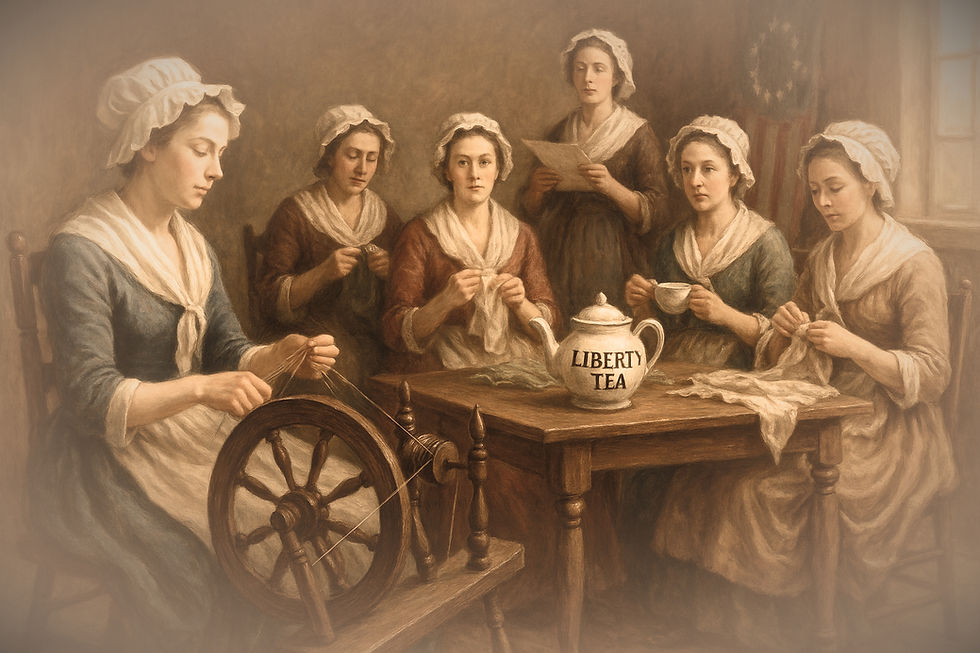A Hero’s Wife: Rediscovering Adele “Kitty” Wainwright
- Melissa

- Apr 21
- 4 min read
Updated: Jul 21

I cannot wait to read the upcoming release of "The Fate of the Generals: MacArthur, Wainwright, and the Epic Battle for the Philippines" (April 15, 2025)! It rekindles my interest in one of World War II’s most heroic and heartbreaking American military stories.
As I refreshed my thoughts about General Jonathan M. Wainwright IV—his family’s military history, his valiant defense of the Philippines, his surrender at Corregidor, and the unimaginable three years he spent as Japan’s highest-ranking American POW—my focus began to drift…no surprise there. Not away from the battlefield, but toward a quieter figure.
A name that is barely a footnote in the history books: Adele “Kitty” (Holley) Wainwright, his wife. Sadly, I never considered her role and experiences—my focus has been on the General’s role and experiences in WWII.
The One We Forgot to Ask About
General Wainwright’s courage is rightly honored with medals, monuments, and recognition pages. But what about Kitty? What did she endure during those silent years, not knowing whether her husband was alive or dead? She, too, came from a Military family. What kind of strength does it take to live through that kind of uncertainty, with the world watching—but never really seeing?
And that, perhaps, is the most telling part of her story: We don’t know.
Not because she wasn’t doing anything. But because no one thought it was important enough to document? No interviews? No headlines? No journal of her part in this chapter of history? Did no one think to ask? Or did they ask, and she declined? So many questions.
Before social media, podcasts, or oral history projects, military spouses like Kitty Wainwright bore the war’s psychological weight in silence. There were no medals for patience, no ceremonies for emotional endurance, and no headlines for quiet courage.
Kitty’s absence from the historical record isn’t just a gap—it’s part of the pattern. Her silence symbolizes the strength of thousands of military spouses, which is expected yet often goes unrecognized. And yet, glimmers of recognition do exist. In 1944, First Lady Eleanor Roosevelt called Kitty Wainwright “an inspiration to all women in this war.” It’s a rare quote—but a powerful one.
Still Searching
I’ll keep searching for more about Kitty—an article, a letter, maybe even a rare photo tucked away in some forgotten archive. Because in lifting her name into the light, we don’t just honor her—we reclaim the stories of countless others who carried the weight of war not with weapons, but with unwavering faith, grit, and unseen strength.
Final Thought: Why Kitty?

Maybe that's why Kitty's story—or, more precisely, her quiet absence—hits me so deeply.
No, my husband wasn't a POW. But after years as a military spouse, I've endured enough deployments, sleepless nights, and tearful goodbyes to know a thing or two about waiting, worrying, loneliness, and figuring out how to keep moving forward under uncertainty.
From active duty myself, from the shock of 9/11 to the long, uncertain stretches in Iraq and Afghanistan—I've seen my share. And I know I'm not alone. Many spouses have walked this same path, carrying the same invisible weight. Navigating the tracks of war and military life isn't for the faint of heart.
Over the years, people have asked me to share my story, speak on panels, and accept awards. More often than not, I smiled, said thank you, and politely escaped stage left like my life depended on it.
It wasn't that I had nothing to say—maybe, just maybe, like Kitty, I didn't want to say it out loud. I didn't want to burden anyone. I know the military...I know what is being asked and expected. And frankly, I didn't want to stand in the spotlight, clutching a microphone, trying to convince people that I was "okay," "everything's fine," or risk sticking my foot squarely in my mouth. (Which, let's be honest, was a near-daily hazard, especially in those early years when I was still figuring out deployments and becoming a "dependent.")
If someone had asked, "How does it feel that your husband's in Iraq again?" or "How are you handling another deployment?"—I probably would've nodded, handed them a cookie or something, poured them some coffee (or wine, depending on the time of day), and changed the subject faster than you can say "Hurry up and wait." Not out of pride. Not out of denial. Mostly because I was exhausted,–– and sometimes, I just want to talk about literally anything else.
And honestly? Some days, the bravest thing you can do is just get up, pour the coffee, and keep going. Thank goodness for my besties, though—they received the full, unfiltered version: sarcasm, venting, turned up to eleven, and all.
Let's be real, though—if someone had handed me an award, I wouldn't (and didn't) turn it down. I would have asked if it came with a spa day... or, at the very least, a decent foot massage.
So yeah. Maybe... Kitty and I have a little something in common. Like so many military spouses, we're part of a long, tough, fiercely loyal tradition of holding the line at home. We don't always talk about it — but we live it. And it stays with us long after the deployments end and the uniforms are packed away. It becomes part of who we are. And sometimes, just living it is more than enough.
Thank you for reading this. Whether you leave a comment that is good, bad, or ugly, I appreciate that as well. ~ Mel
P.S. I'm still digging into Kitty. Who knows? Maybe I've been looking in the wrong places.
P.P.S. You know, as soon as I hit "publish," I'm going to find a trove of Kitty info hiding in plain sight. Stay tuned.







Comments